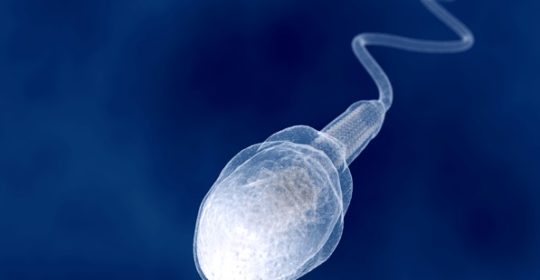
How does sperm motility affect fertility?
Sperm motility is the ability of sperm to move efficiently. This is important in fertility because sperm need to move through the woman’s reproductive tract to reach and fertilize her egg. Poor sperm motility can be a cause of male factor infertility.
In this article, we look at the impact of sperm motility on fertility, as well as the causes of poor sperm motility, and what can be done to improve it.
There are two kinds of sperm motility, referring to the way the individual sperm swim.
Progressive motility refers to sperm that are swimming in a mostly straight line or large circles.
Non-progressive motility refers to sperm that do not travel in straight lines or that swim in very tight circles.
For the sperm to get through the cervical mucus to fertilize a woman’s egg, they need to have progressive motility of at least 25 micrometers a second.
Poor sperm motility or asthenozoospermia is diagnosed when less than 32 percent of the sperm are able to move efficiently.
How does it affect fertility?
Worldwide, around 60 to 80 million couples are affected by infertility, and the rates vary from country to country.
In the United States, the rate is thought to be around 10 percent of couples. The figure is based on the definition of infertility as the inability to conceive after 12 months of trying.
Male factor infertility is when an issue with the man’s biology makes him unable to impregnate a woman. It accounts for between 40 to 50 percent of infertility cases and affects around 7 percent of men.
Male infertility is usually the result of deficiencies in the semen, the most common of which are:
- low sperm count or oligospermia
- poor sperm motility
- abnormal sperm shape or teratospermia
Around 90 percent of male infertility issues are caused by low sperm count, but poor sperm motility is an important factor also.
Causes of low motility
The causes of low sperm motility vary, and many cases are unexplained.
Damage to the testicles, which make and store sperm, can impact on the quality of sperm.
Common causes of testicle damage include:
- infection
- testicular cancer
- testicular surgery
- an issue a man is born with
- undescended testicles
- injury
The long-term use of anabolic steroids can reduce sperm count and motility. Drugs, such as cannabis and cocaine, as well as some herbal remedies, can also affect semen quality.
Varicocele, a condition of enlarged veins in the scrotum, has also been associated with low sperm motility.
How to improve sperm motility
There are lifestyle choices people can make that will help improve the quality of their sperm. Smoking can reduce fertility and has been shown to affect sperm motility.
Recreational drugs, including cannabis, amphetamines, and opiates, and excessive alcohol consumption also reduce sperm quality. Doctors advise people to avoid these if they are trying to conceive.
Being overweight with a body mass index of 25 or more can affect both the quality and quantity of sperm.
There is a link between an increased temperature of the scrotum and a reduction in the quality of sperm. The ideal, sperm-producing temperature is around 94 °F, or just below body temperature, so loose-fitting underwear and taking simple measures to keep the testicles cool may help.
Helpful steps include taking regular breaks if working in a hot environment, and getting up and moving around if a person spends long periods sitting down.
There is no evidence that complementary therapies are effective in improving sperm motility.


